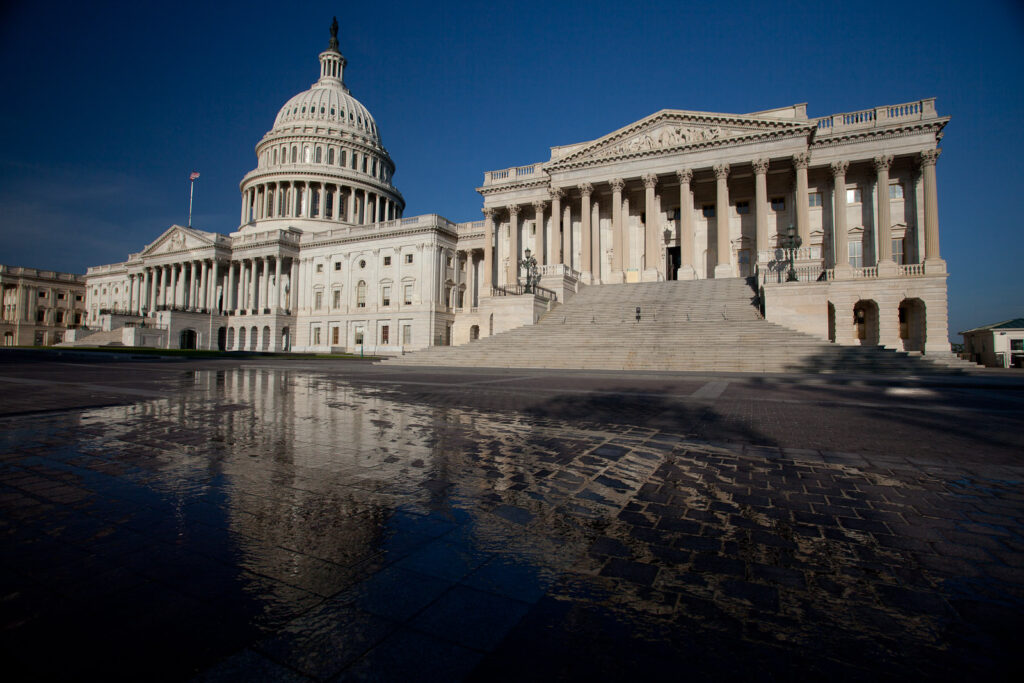A congressional hearing to discuss HR 82, the Social Security Fairness Act of 2023, was held on November 20, 2023. HR 82, if passed, would repeal the harmful and arbitrary Windfall Elimination Provision (WEP) and Government Pension Offset (GPO). During a previous congressional cycle, HR 82 gained significant momentum and widespread co-sponsorship, but ultimately, failed to pass.
The hearing was held by U.S. House Ways and Means Subcommittee on Social Security. Entitled “Social Security’s Disservice to Public Servants: How the Windfall Elimination Provision and Government Pension Offset Mistreat Government Workers,” the hearing was streamed live and can be viewed here.
The Texas Retired Teachers Association (TRTA) submitted written testimony for the hearing, which our members can read online.
As members of TRTA may know, these provisions took effect in the 1980’s as a means of eliminating the “windfall” of Social Security benefits received by beneficiaries who also receive a pension based on work not covered by Social Security.
Ninety-five percent of Texas public school employees do not pay into Social Security through their work with Texas schools. However, many have other jobs before, during, or after their employment in education in which they do pay into the federal program.
HR 82 was filed by Congressman Garret Graves (R, LA). When introducing the bill, Congressman Graves said “this has been going on for far too long”—referring to the passage of the federal provisions more than 40 years ago.
Subcommittee Chairman Congressman Mike Carey (R, OH) described the GPO and WEP as flawed, complex formulas that tend to overcorrect. He explained that today’s hearing “is the first step to identify meaningful relief for our public servants.”
Congressman Jason Smith (R, MO), who is the Chairman for the full U.S. House Ways and Means Committee, expressed that public servants impacted by the WEP and GPO “deserve a secure retirement,” and that the real consequences for public employees include their struggles “to afford their food, medicine, and heat their homes.” He added that these senior citizens “are not only harmed, but blindsided,” finding out too late, at the point of retirement, to adjust their plans. Congressman Smith emphasized that Congress must find a bipartisan way to resolve these issues.
Witnesses who are retired public servants gave public testimony during the hearing.
Patrick Yoes, National President of the Fraternal Order of Police, testified that there has been no real action on GPO and WEP since 2008. He stated that there is deep frustration for law enforcement officers who lose up to 60 percent of their earned Social Security benefits due to WEP. Seventy percent lose their entire spousal or survivor benefit due to GPO. This “discourages anyone from pursuing a career in public service,” said Yoes.
Yoes said that he hears from members of his organization every week. “They’re not asking for handouts—they’re asking for what they earned.”
Bernie Piro, a retired firefighter of 35 years, testified that he expects his Social Security benefits to be cut by about 60 percent due to WEP. He described the provisions as a betrayal and “an injustice that must be corrected now.” He explained how the WEP has been a tremendous hardship on his family, and they have eliminated spending where they can, including internet service and a landline at their home.
Paula Porter, a retired school teacher from Louisiana of 38 years, testified that her husband passed away at age 61 from cancer and never collected any Social Security income. Mrs. Porter worked part-time jobs throughout her career after this passing to support their five children. Porter is now 80 years old, and she has been denied her husband’s benefits. “I still live a simple life—I don’t travel, I don’t go to movies. You lead a very, very simple life.”
Congressman Graves, who is married to a teacher, said, “this is a real penalty affecting real people.” “Congress is calling it ‘budgeting’ and acting like it’s okay—they got it wrong.” Graves asked Mrs. Porter if she had known about these provisions before entering public education if she would still choose to be a teacher. “No, I don’t think so,” she said.
TRTA appreciates the members of the House Ways and Means Subcommittee on Social Security for bringing this issue to the forefront.
The time to perpetuate bad public policy at the expense of those who cannot afford to lose their hard–earned Social Security benefits must come to an end. Congress, working with stakeholder groups, must make resolving this issue a priority! Now is the time for a bipartisan solution to make a difference for all public workers hurt by the WEP and GPO.
TRTA looks forward to working with the U.S. House Ways and Means Committee to make progress during this Congress. TRTA leaders and staff are working with congressional members right now to advance reform. TRTA will continue to work with its national coalition, including the MASS Retirees Association and Association of Texas Professional Educators (ATPE), to enact positive change for retirees.




